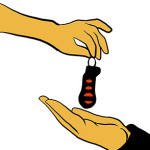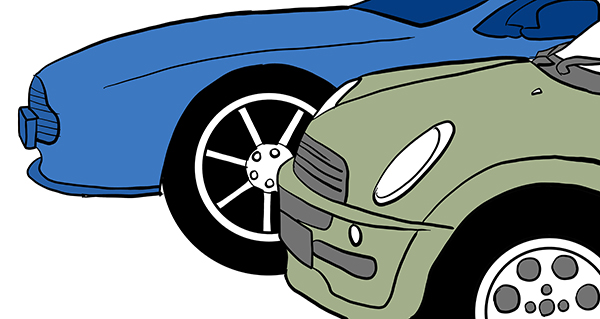Updated on November 13, 2024: This post was originally published in 2008 and has been revamped for accuracy, comprehensiveness, and relevancy.
Welcome to the complex world of car leasing. You may think of it as a simple process based on those enticing ads, but the reality is a web of contract terms, financial language, and meticulous details. However, armed with the right knowledge, you can turn this intricate process into a rewarding experience.
Lease agreements vary substantially among companies, so it’s crucial to understand the terms and shop around for the best deal. Always read the fine print to avoid unpleasant surprises down the line.
1. What exactly does leasing a car entail?
In simple terms, a lease is a long-term rental agreement. Leasing could be an ideal option if you enjoy switching to a new car every few years or if you’d rather not bear the burden of a car’s depreciation. However, if you’re a high-mileage or rough driver, or if you like to drive your cars until they retire, leasing might not be as straightforward as it seems.
2. Is leasing a car cheaper or more beneficial than buying?
Vehicle Leasing can be a strategic move if you prefer to change your car every 2 to 3 years. It can reduce your car payments, or even allow you to drive a pricier car for a payment similar to that of a less expensive car. However, keep in mind the mileage caps and the decision you’ll need to make about purchasing a new car once your lease concludes. Also, leasing typically requires a good to excellent credit score.
3. What key leasing jargon should I know?
MSRP: The Manufacturer’s Suggested Retail Price (MSRP) is set by the car company, and should be displayed in a new car’s window. However, there might be additional charges that differ from dealer to dealer.
Capitalized cost: This is essentially the price of the vehicle. Regardless of whether you’re leasing or buying the car, negotiating the capitalized cost is crucial as a lower cost will result in lower monthly payments.
Money factor: Also known as the lease factor, the lower this number, the better for you. Multiply it by 2,400 to get an estimate of the interest rate. Dealers might be hesitant to reveal the money factor, so don’t shy away from asking.
Residual value: This is the car’s estimated value at the end of the lease. A higher residual value lowers your monthly payments, but it can also complicate the process of selling the lease, trading your vehicle mid-lease, or buying the vehicle at the end of the lease.
4. What upfront payments are required at the start of a lease?
- Your first monthly payment
- A security deposit or your final monthly payment
- An additional down payment
- Fees for the vehicle’s licensing and registration
- Freight and destination charges
- Taxes
- Processing fees
5. What type of lease should I choose?
Ensure you’re signing a closed-end lease. In such a lease, the leasing company absorbs the cost if the car is worth less at the end of your lease than what was estimated during the signing. Always read the fine print and ensure you understand all the terms.
6. How do mileage caps affect my lease?
Since a car’s mileage influences its resale value, leases typically come with an annual mileage limit, usually between 10,000 to 15,000 miles. Ask about the mileage limit and the cost-per-mile penalty for exceeding the limit. If the limit is too low, you can usually negotiate a higher limit, but this will increase the cost of the lease.
7. What warranty coverage comes with my lease?

If you lease for the duration of the manufacturer’s warranty, you’ll avoid paying for major repairs. Ensure the manufacturer’s warranty covers the entire lease term and the number of miles you’re likely to drive.
8. What constitutes normal wear and tear?
While you may consider a ding in the door or coffee stains on the upholstery as normal wear and tear, the dealer might see it as significant damage. Understand what the lease agreement defines as normal wear and tear before you sign.
9. What are my maintenance responsibilities?
During the contract period, you are typically responsible for the costs of maintaining the vehicle, just like you would if you owned it. This includes expenses such as insurance, oil changes, brakes and tires maintenance, regular upkeep, and all taxes assessed by your local government.
10. What happens if I need to end the lease early?
Prepare for the unexpected! Understand what happens if you need to terminate the lease early and ensure you can afford it. Early termination of a lease can be quite expensive.
11. What insurance coverage do I need?
You will likely need gap insurance to cover the difference—potentially thousands of dollars—between what you owe on the lease and what the car is worth if it’s stolen or totaled in an accident. However, gap insurance only makes sense if you expect to be “upside down” on the car (you owe more than it is worth).
12. What fees might I face at lease-end?
You might be responsible for fees including excess mileage, damage, and more. Ensure you clarify all the potential end-of-lease fees with the dealer.
13. How can I negotiate the best lease deal?
Before revealing your intention to lease, negotiate a reasonable purchase price for the car. If a dealer knows from the start that you plan to lease, they might use leasing terms to mask the actual sale price of the car. Comparing offers from different dealers on the same model can also be effective, as manufacturers usually offer the same lease program for each model.
14. Should I buy my leased car at the end of the term?
The end-of-lease purchase price, also known as “Residual Value,” typically exceeds the actual market value of a car by $3k-$4k. Remember, there’s also a non-negotiable “purchase option fee” of around $300-$400 hidden in your lease contract if you choose to buy the car at the end of the lease. My advice? Offer less than the market value for the car. Go into your negotiation well-prepared, and don’t hesitate to walk away if the terms don’t meet your expectations.
Disclaimer: This guide provides general information about vehicle leasing. Specific terms, conditions, and availability may vary. Consult with financial and tax advisors before making leasing decisions. Information current as of November 2024.


